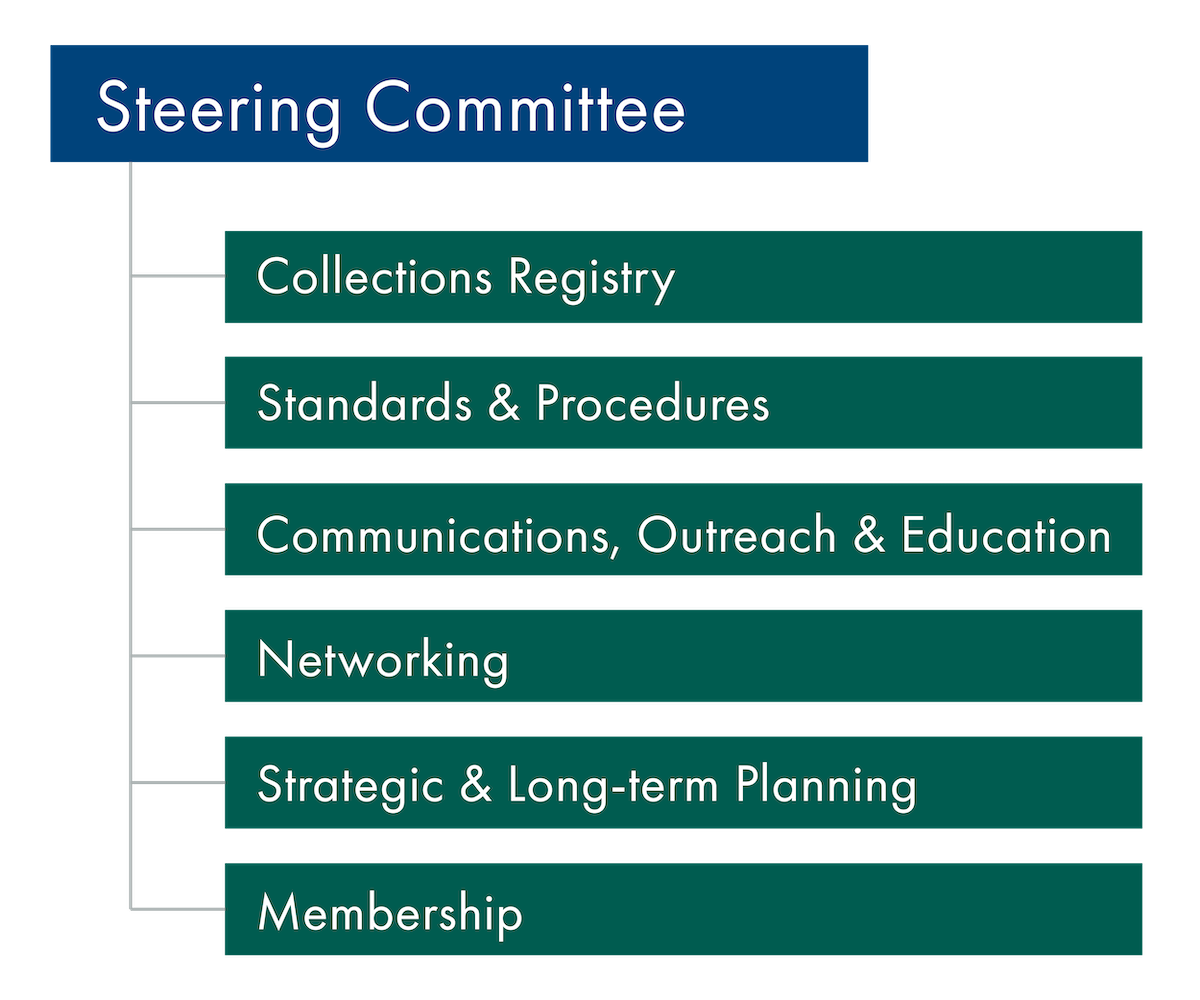About the USCCN
Vision
USCCN seeks to optimize the quality and availability of microbial resources and become a central resource for U.S. microbe culture collections and their users.
Mission
Facilitate the safe and responsible utilization of microbial resources for research, education, industry, medicine, and agriculture for the betterment of humankind by providing opportunities for U.S. culture collection workers to engage with each other and with the broader culture collection community.
Goals
Provide venues for interaction of living microbe collection workers, to promote best practices, and to engage the larger living collection community broadly (nationally and internationally).
Objectives
- Create and maintain a registry of U.S. microbe collections
- Develop best practices guidelines, protocols, standard operating procedures, and other resources
- Develop processes and methods for preserving orphaned or endangered collections
- Strengthen and expand contacts among U.S. and international collections and users
- Explore sustainable mechanisms for long-term structure and support for the USCCN
Collections of living microbes assure that current and past research and innovation are available to future generations of scientists. Biological materials which are made available via well managed collections represent the foundation of the modern biotechnology industry. Materials in culture collections impact fields as diverse as human health, agricultural productivity, biotechnology, and bio-diversity research. While there are several professional collections in the United States, most collections are small and do not have long term strategies for survival. The USCCN serves as a central entity to provide guidance and support for these collections.
The network is made possible by grants #1534564 and #2124633 from the U.S. National Science Foundation.
Structure
The U.S. Culture Collections Network structure consists of a Steering Committee and Operating Committees.
Steering Committee
The Steering Committee identifies USCCN priorities for achieving the vision and mission and oversees the day-to-day activities of the network.

Operating Committees
The Operating Committees lead and coordinate various aspects of the network in the following areas: Collections Registry Coordination; Standards and Procedures; Communications, Outreach and Education; Networking; Strategic and long-term Planning; Membership,
